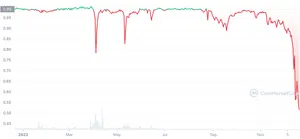Two of Sam Bankman-Fried's inner circle, Caroline Ellison and Gary Wang, have pled guilty to federal criminal charges and are cooperating in the case against Sam Bankman-Fried. Ellison was the CEO of Alameda Research, the trading firm founded by Sam Bankman-Fried in 2017. Wang was a co-founder of FTX alongside Bankman-Fried, and served as its CTO.Ellison's and Wang's pleas were announced in a short message by U.S. Attorney Damian Williams, who did not elaborate on what the charges were. He again urged any others who had knowledge of criminal activity at FTX to come forward, and warned that these were not the last charges he expected to file.
Simultaneously with the charges from the Justice Department were civil complaints from the Securities and Exchange Commission, which alleged that both had been involved "in a multiyear scheme to defraud equity investors in FTX". In particular, the SEC accused Ellison of artificially manipulating the price of FTT, the FTX-issued token that formed a large portion of Alameda's balance sheet. The SEC accused Wang of creating a backdoor in FTX software that allowed Alameda to move customer funds from FTX for use in its trading activities.
The CFTC filed an amendment to their complaint against Sam Bankman-Fried, adding Ellison and Wang as defendants.










